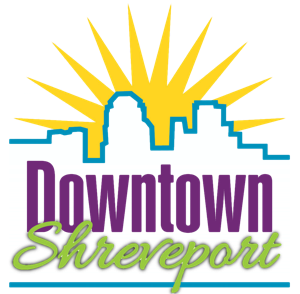Downtown Development Authority
Policies Regarding Changes to the Open Meetings Law
Act 393 of the 2023 Regular Session of the Louisiana Legislature
Act 393 of the 2023 Regular Session of the Louisiana Legislature made significant changes to the Open Meetings Law. The changes apply to the Shreveport Downtown Development Authority (“DDA”) and are noted as follows:
I. All State and Local Government Meetings
A. Public Participation – R.S. 42:14(E)
- Applies to all state and local public bodies, which is defined in the Open Meetings law as “village, town, and city governing authorities; parish governing authorities, school boards and boards of levee and port commissioners; boards of publicly operated utilities; planning, zoning; and airport commissions; and any other state, parish, municipal, or special district boards, commissions, or authorities, and those of any political subdivision thereof, where such body possesses policy making, advisory, or administrative functions, including any committee or subcommittee of any of these bodies{…}” R.S. 42:13(A)(3).
- All public bodies that have the capability to conduct electronic meetings (teleconference or videoconference) shall adopt rules, regulations, and procedures to allow any member of the public with a disability recognized by the Americans with Disabilities Act (ADA), or caretaker of such person, to participate in its meetings if such person so requests.
- Public bodies that do not have such capability shall adopt rules to facilitate viable alternative methods for members of the public with an ADA disability to participate in its meetings if such person, or caretaker, so requests.
- State agencies, defined in R.S. 49:951 as all state entities except committees/boards of the Court and the Legislature, shall promulgate rules pursuant to the Administrative Procedures Act (APA).
- Requirements of R.S. 42:14€ are not applicable during a properly held executive session or during any meeting that is sequestered in accordance with the law.
DDA Policy Regarding Members of the Public With a Disability Recognized by the ADA
If a member of the public with a disability recognized by the ADA or their caretaker requests an accommodation from the DDA in order to make comments at a DDA meeting, the following will apply:
- The individual must call the DDA office at 318-222-7403 one hour (2:30 pm CST) or no later than thirty minutes (3:00 pm CST) prior to the start of the meeting at 3:30 pm CST.
- The regularly scheduled DDA board meeting is held on the fourth (4th) Wednesday of each month at 416 Cotton Street, Shreveport, LA 71101.
- The agenda is published twenty-four (24) hours in advance of the meeting and posted on the front door of the DDA offices at 416 Cotton Street, Shreveport, LA 71101 and on the DDA website at www.ddaold.wpenginepowered.com.
- Individuals requesting accommodation must give their full name, address, and telephone number to the DDA staff member who answers the call and indicate whether or not they wish to make comments under the Agenda or Non-Agenda items or both or whether they simply want to listen to the proceedings.
- The DDA staff member will inform the individual that the call will be on teleconference and heard by all in attendance if the individual wishes to speak. If the individual wishes to comment on Non-Agenda items, he/she will be called back at the number provided before the Non-Agenda items discussion.
- The individual must state his/her full name before making comments on Agenda items or Non-Agenda items during the meeting.
- If the telephone connection is lost, the citizen must call the DDA office again. The call will once-again be placed on speaker.
- It should be noted that Public Comments for Agenda Items are held at the beginning of the meeting. Public Comments for Non-Agenda Items are held after Announcements at the conclusion of the meeting.
- The offices of the DDA are handicap accessible should the member of the public with a disability recognized by the ADA or their caretaker wish to attend the meeting in person.
- If more than one individual requests an accommodation for the same meeting, each individual must call the DDA office at 318-222-7403 to be placed in que for the opportunity to speak as so desired for either the Non-Agenda or Agenda items or to listen to the meeting. If necessary, a DDA staff member will call each individual to accommodate that person/s desired time to speak on either Agenda or Non-agenda items until each individual requesting an accommodation has had the opportunity to speak at the meeting.
B. Board Participation – R.S. 42:17.2.1
Members of the DDA Board of Directors With a Disability Recognized by the ADA
- If a member of the DDA Board of Directors has a disability recognized by the ADA, the board member shall be allowed to participate and vote in a meeting via electronic means as defined in R.S. 42:17 2 (video or teleconference)
- The board member with the disability may request to attend the meetings electronically rather than in person. When selected to be a member of the board of directors of the DDA, the member must submit, in writing, an explanation of the disability recognized by the ADA and his/her request to attend the meetings electronically via teleconference call in lieu of attending the meeting in person. The electronic participation will count towards board attendance.
- The board member should call the DDA office at 318-222-7403 at the beginning of the board meeting but may call in at any time during the meeting.
- It shall be the responsibility of the board member requesting accommodation to call the DDA office back if communication is lost during the meeting.
- The board member’s attendance by teleconference shall count towards a quorum, and the member may participate and vote in meetings (R.S. 42:17.21(A).
- The board member’s vote will be taken via voice at the time of voting by the board members.
II. Non-Emergency Exception to 1/3 of Open Meetings of Statewide Boards
R.S. 42:17.2 authorizes certain statewide public bodies to conduct up to 1/3 of their meetings via electronic means (video or teleconference) outside of a gubernatorially declared state of disaster or emergency provided certain special requirements, including notice, agenda publication, and public participation, are met. This law is not related to ADA considerations.
- This exception only applies to those public bodies that have “powers, duties, or functions that are not limited to a particular political subdivision or region and that conducts at last six regularly scheduled meetings in a calendar year.” R.S. 42:17.2(H)(1).
- This exception does not apply to the DDA as its powers, duties, or functions are limited to a particular political subdivision or region (the Downtown Development District of Shreveport, Louisiana).
III. Disability – Recognized by the Americans with Disabilities Act
The Americans with Disability Act (ADA) in 42 USC S12102, defines “disability” for the purpose of an individual under the ADA to mean:
- A physical or mental impairment that substantially limits one or more major life activities of the individual;
- A record of such an impairment; or
- Being regarded as having such an impairment.
The ADA further defines “major life activities” as including, but not limited to, the following:
- Caring for oneself, performing manual tasks, seeing, hearing, eating, sleeping, walking, standing, lifting, bending, speaking, breathing, learning, reading, concentrating, thinking, communicating, and working; and
- Operation of major bodily functions, such as functions of the immune system, normal cell growth, digestive, bowel, bladder, neurological, brain, respiratory, circulatory, endocrine, and reproductive functions.
42 USC 12102(4) provides that disability shall be construed in favor of broad coverage of individuals, and that impairments may be temporary in nature and still constitute a disability for the purposes of the ADA.
The ADA itself does not define or identify specific medical conditions as constituting a disability. However, the Equal Employment Opportunity Commission (EEOC) and the U.S. Department of Justice: Civil Rights Division, who are tasked with enforcement of the ADA have through rulemaking provided guidance that the following medical conditions, when substantially limiting major life activities, will likely constitute a disability for the purposes of the ADA:
- Blindness
- Deafness
- Intellectual disability
- Partial or complete missing of limbs or Mobility impairments requiring a wheelchair
- Autism
- Cancer
- Cerebral palsy
- Diabetes
- Epilepsy
- Human Immunodeficiency Virus
- Multiple sclerosis
- Muscular dystrophy
- Major depressive disorder
- Bipolar disorder
- Post-traumatic stress disorder
- Obsessive compulsive disorder
- Schizophrenia


